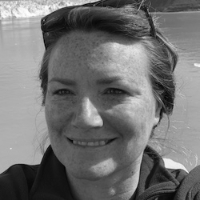
Leslie Shor (UConn, Chemical Engineering, Center for Environmental Science & Engineering): uniquely brings expertise in bacterial biodegradation and bioremediation; microfluidics; and STEM outreach. Her research focus in recent years has been to understand, model, and predict the function of microbial communities interacting within synthetic model environments, including model environments that emulate soil, sediment, bioreactors, or biofilm. In her work, synthetic microenvironments feature appropriately scaled physical features, realistic surface chemistry, and dynamically controlled chemical gradients. Microbial culture chambers will be fabricated using photolithography, soft lithography, and 3D printing; and cells and cellular function manipulated using flow, droplets, contact printing, and optogenetics. She will help to measure biological responses using optical and electrochemical sensors, wide-field and confocal microscopy, and digital image processing. Leslie has an unusual background with a BA in environmental science and chemistry, a PhD in chemical engineering, and postdoctoral training in both environmental engineering and biomedical engineering (microfluidics). She previously collaborated with nearly every member of the team. www.leslieshor.com

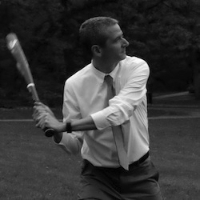
Daniel Gage (UConn, Molecular and Cell Biology) The Gage laboratory has three main lines of research: 1) using genetic, molecular biological and biochemical approaches to study signal transduction in the nitrogen-fixing symbiont Sinorhizobium meliloti, 2) optical and image-analytic approaches for the study of microbial cell biology, 3) developing tools and methods for the study and control bacterial gene-expression in complex environments 4) the study of protists and their associations with bacteria. His expertise in bacteria-host interaction, bacterial genetics, and protist isolation and culturing will be used to identify bacteria able to degrade microplastics after co-concentration by mussel. He will collaborate with Kelly Burke & Tracy Mincer. Together they will jointly train students on the development of scalable systems to remove and eliminate end-of-life plastics. https://gage.mcb.uconn.edu/index.html
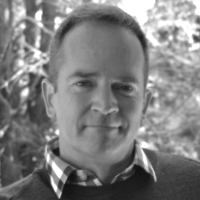
Tracy Mincer (Florida Atlantic University, Biology): uniquely brings expertise in marine microbial ecology and he is a pioneer in the area of microbial interactions with plastic debris. Tracy will participate in co-feeding experiments and contribute a collection of over 1000 microbes collected from open ocean, coastal and estuarine plastic debris samples (see Facilities section). He will support Dan Gage, Kelly Burke and others with method development, quantifying MP depolymerization, and MP characterization. Dr. Mincer’s research group has observed metagenomic evidence of hydrocarbon degradation from plastic debris microbiome samples, has generated compelling pilot data regarding microbially-driven Fenton reactions to depolymerize polyethylene, and aspires to help the research team provide a 'kick-start' to assemble and optimize specific microbial consortia to demonstrate a pilot-scale process to mineralize plastic polymers recalcitrant to recycling or up-cycling. https://www.fau.edu/honors/faculty/mincer/
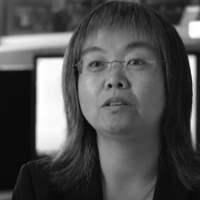
Baikun Li (UConn, Environmental Engineering, Center for Environmental Science & Engineering): Dr. Li has over 15 years of experience studying water/wastewater quality engineering and science, environmental biotechnology, and resource recovery. Her current research focuses on water/soil electrochemical sensors, real time in situ water quality monitoring, and self-sustained wastewater treatment processes. Dr. Li has established an international reputation in scalability of bioelectricity production from wastewater using microbial fuel cells (MFCs), and successfully conducted the first pilot-scale continuous-flow MFC tests nationally in a New York waste water treatment plant. In 2018, Baikun’s group won first place in the EPA National Challenge of Nitrogen Sensors and conducted the first 7-day Nitrogen Sensor Field Test nationally using real municipal wastewater. Baikun’s Bioenergy and Biosensor lab has hosted over 3500 visitors in the past 12 years for lab demo and pilot-scale hands-on experiments. In this project, Dr. Li will bring her unique expertise in wastewater treatment and water sensing technology to investigate the MP transport and fate in the UConn WWTP and to design and manage the pilot-scale bivalves wastewater treatment systems. She will collaborate closely and co-advise students with Evan Ward. https://cee.engr.uconn.edu/people/li-baikun
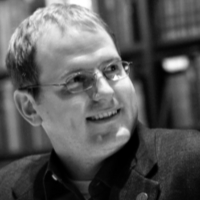
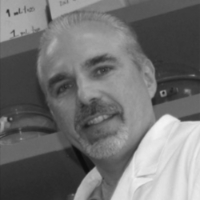
J. Evan Ward (UConn, Marine Sciences): Dr. Ward has over 30 years of experience studying the physiology and behavior of filter-feeding bivalves. His research on these animals focuses on interactions with anthropogenic materials including nano- and microplastics. In recent work, his lab has been quantifying the types and quantities of plastic particles found in bivalves growing in natural populations and at aquaculture farms. Under controlled conditions, he is exposing bivalves to several types of microplastics with different physicochemical characteristics (i.e., size, shape, aspect ratio, surface charge, surface wettability), and the most frequently ingested and most frequently rejected types are being determined. With these data he and his team are developing a model that will predict, based on the physicochemical properties of the plastic particles, which types are likely taken up by the bivalves. His recently published works on microplastics have significantly advanced the field and have revealed the extent to which bivalves can selectively reject and ingest plastic particles, and the time-course for egestion and elimination. His work on particle capture, selection, and egestion of microplastics by bivalves, including the zebra mussel (Dreissena polymorpha), is essential to the bioconcentration work. His deep knowledge will enable the team to successfully employ biofiltration at scale. He will collaborate closely with Baikun Li. https://marinesciences.uconn.edu/person/j-evan-ward/
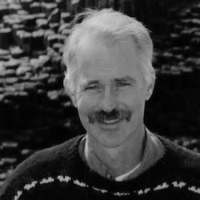
George McManus (UConn, Marine Sciences): Dr. McManus uniquely brings expertise in microzooplankton ecology and physiology. He will provide expertise to better understanding how plastic particles are processed by pelagic grazers and how this processing can create conditions under which plastic particles may be mineralized. Dr. McManus will advise students with Dan Gage, Kelly Burke, Evan Ward, and Baikun Li. https://microzooplankton.uconn.edu
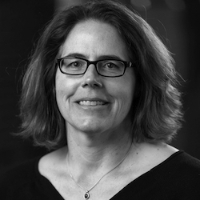
Christine Kirchhoff (UConn, Environmental Engineering): uniquely brings expertise in human dimensions of engineering and social studies of science and technology adoption within the context of water resources, water policy/governance and water infrastructure. Dr. Kirchhoff is an interdisciplinary social scientist and engineer whose expertise bridges both the practice of wastewater engineering and the understanding of the socio-technical systems within which wastewater systems operate. She also has extensive experience connecting research to policy- and decision-making for state water and wastewater regulatory agencies as well as assisting in capacity building efforts that enhance technology adoption. Dr. Kirchhoff will lead the assessment of drivers and barriers to adoption of novel microplastic elimination technology, the expert elicitation workshop with state agency and wastewater managers from the Northeast and Southeast US to facilitate innovation adoption benchmark tool development, and the experimental treatment to test the effectiveness of providing benchmarking with or without techno-economic and socio-technical information to promote uptake of microplastic elimination technology in existing wastewater systems. Dr. Kirchhoff will work closely with Matt Stuber and input gathered from interacting with wastewater treatment plant managers will feed back into MP technology development. https://kirchhofflg.weebly.com

Matthew Stuber (UConn, Chemical Engineering): uniquely brings expertise in deterministic global optimization, process systems modeling, and robust design. His latest work has focused on designing integrated renewable energy-driven desalination systems, renewable energy retrofit strategies for industrial process heat, rigorous theory for validating dynamical systems models, and rigorous physics-informed data-driven modeling in wastewater treatment processes for advanced energy-optimal control policies. Dr. Stuber and his students develop and maintain the only open-source deterministic global optimization software package with innovative plug-ins for dynamic models. Dr. Stuber will model the entire water treatment process and account for lifecycle economics, rigorously validate the process model against experimental data, and optimize process conditions with uncertainty. Dr. Stuber will work closely with Christine Kirchhoff and Baikun Li. https://psor.uconn.edu